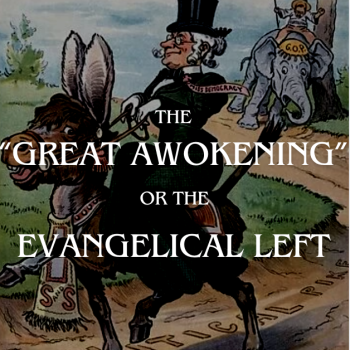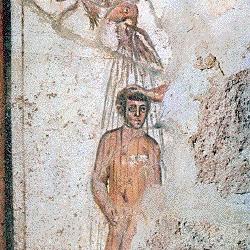Some cite the film's (possibly) ambiguous ending—can something be ambiguously ambiguous?—and the harsh actions of the horse breakers as a sign that the film is firmly ensconced on the "Nature Is Better Off Without Humanity" side of the debate. But the story's most brutal moments come from its animal protagonists, not its human ones. (The battle for supremacy between White Mane and a rival stallion is particularly difficult to watch for those of us accustomed to the thoroughly American Humane Association-approved cinematic experiences of today.) And while the methods employed by the film's adults are hard-hearted, their motivation seems to be one of utility rather than simple cruelty; they have a job to do, and they're employing the often rough means necessary to accomplish their task. They're not mean, just practical.
Still, to deny that the film "leans green" would be disingenuous and would run the risk of ignoring its efforts at highlighting the delicate balance between humanity and the created world—a balance we humans dismiss at our peril. Lamorisse clearly intends us to view the actions of the cowboys with some skepticism (perhaps even distaste), but their behavior is of secondary interest to him, gaining its true meaning only when seen in contrast with Folco's own actions.
Nature and Mankind share the ultimate symbiotic relationship: Nature provides humans with material needs, and Man provides Nature with its reason for being. Yet this internal, dynamic balance—"the integrity of the cosmos," as Blessed Pope John Paul II describes it—is far more difficult to recognize that one would imagine. We find ourselves so focused on our God-given prerogative to "subdue the Earth" that we often ignore what it's trying to tell us.
To truly embrace our roles as stewards, we must learn to listen as well as to command. The subjugation of Nature will only succeed if we recognize the importance of the stewardship to which we have been called. It is easy to assert our importance in the order of Creation, but Heaven help us if we refuse to recognize that safeguarding the integrity of this harmonious universe is as vital a part of our human nature as is our dominion over it.
And one needs to be both patient and nuanced to understand that.





